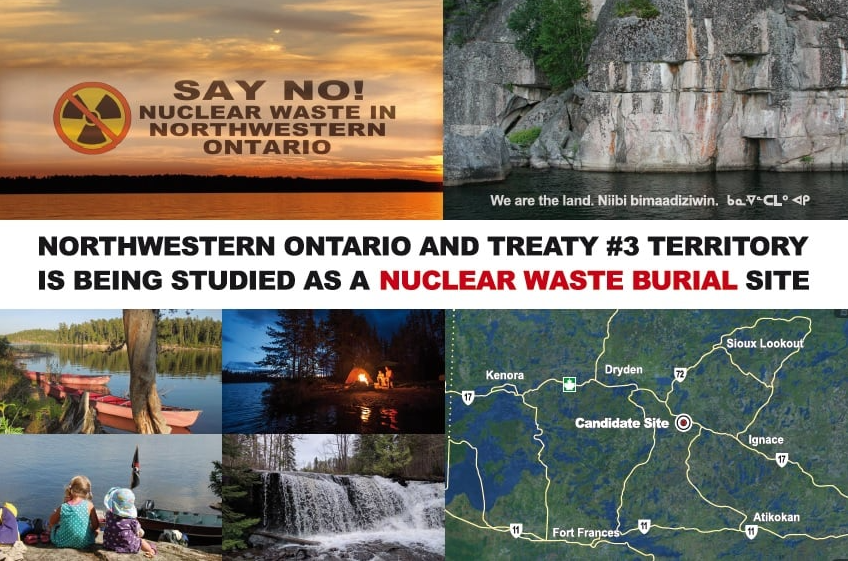KENORA, Ont. — Thirty thousand households and businesses in Northwestern Ontario are receiving postcards from a group of organizations opposed to nuclear waste disposal in Northwestern Ontario.
We the Nuclear Free North calls itself an alliance of Indigenous and non-Indigenous volunteers and organizations who believe the risks of transporting and burying nuclear waste are too high.
It's delivering information cards outlining its concerns to residents living between Upsala and the Manitoba border.
The Nuclear Waste Management Organization has identified the Revell Lake area, about 35 kilometres from Ignace, as a candidate site for an underground repository, and is continuing to conduct studies in the area.
NWMO is also still looking at a site in Bruce County in southern Ontario.
We the Nuclear Free North says it has launched a website to provide information about the project from sources that are independent of the nuclear power companies that generate and own Canada's nuclear waste.
It says NWMO is proposing to send multiple truckloads of highly radioactive waste to its selected site "every day for at least 40 years."
Spokesperson Fred Melanson, who served on Ear Falls council when that community was being studied for nuclear waste disposal, said "This is not the kind of development the people of Northwestern Ontario want. Burying nuclear waste is a high-risk experiment."
Although NWMO has developed a working relationship with the Township of Ignace during the study process, Environment North representative Dodie LeGassick said "This is not an issue for one community. It is an issue for the entire region."
LeGassick said "Ignace should not get to decide whether 22,000 trucks hauling radioactive waste drive through Nipigon and through Shuniah Township and all of the other many communities along the route."
On its website, the alliance – which includes Environment North and Northwatch – also notes that the United Nations Declaration on the Rights of Indigenous Peoples requires that states "take effective measures to ensure that no storage or disposal of hazardous materials shall take place in the lands or territories of indigenous peoples without their free, prior and informed consent."
Peter White, an elder with Grand Council Treaty # 3's Ki'ieshgitabaaning Cultural and Healing Lodge said "The lives of our children and future generations are too precious to be used as a nuclear experiment and should not have this burden put on their shoulders."
NWMO intends to make a final decision on the location of the underground storage site in 2023.
